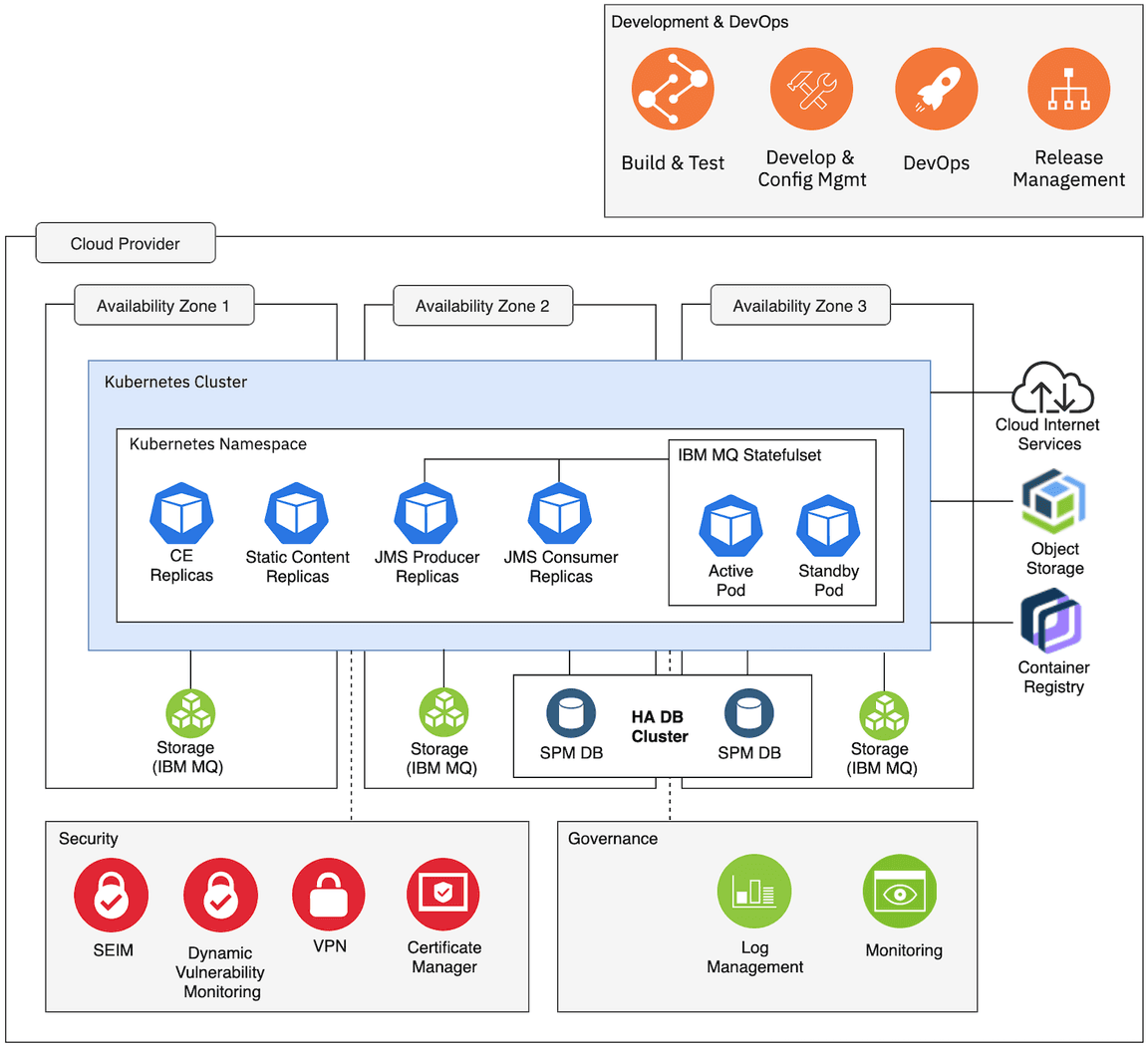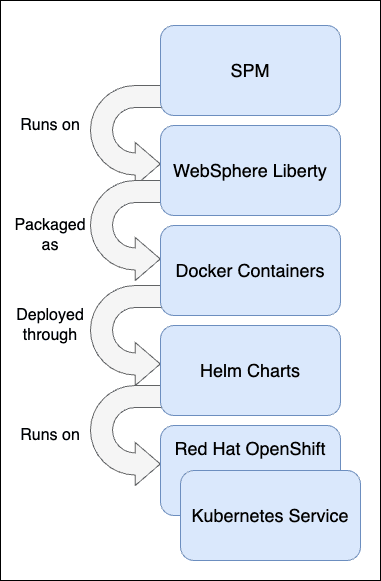Architecture Overview
Merative Social Program Management (SPM) is not a PaaS nor a SaaS offering on Cloud. SPM is a platform for Social Programs that customers configure and customize according to their own requirements. Then build, deploy, run and operate on environments according to their own Software Development Life Cycle (SDLC) requirements.
SPM can either be deployed on traditional hosting architectures (i.e. virtual machines or bare metal) or on Kubernetes. This runbook only refers to the cloud native hosting on Kubernetes.
SPM can be deployed on two Kubernetes distributions:
Azure Kubernetes Services (AKS): only available on Microsoft Azure.
Red Hat OpenShift: on any environment supported by Red Hat (e.g. on-premises, private cloud or public cloud).
The Figure 1 shows the essential nature of the SPM architecture on Kubernetes.
It conveys the governing ideas and major building blocks of the architecture. The “Development & DevOps”, “Security” and “Governance” components and processes described in the architecture diagram are just for reference and will likely be different, depending on your Deployment Architecture.
SPM does not require nor impose these components in the architecture.

Figure 1: SPM on Kubernetes
The Figure 2 shows how SPM is built as a containerized application by using WebSphere® Application Server Liberty, packaged as Docker® containers, orchestrated by Helm, and running on Red Hat OpenShift or Kubernetes Service.

Figure 2: SPM packaging for Kubernetes
To support containerized architectures, a number of architectural changes were made. The changes are documented as follows and apply only to SPM running on Kubernetes.
- Message Architecture When Merative Social Program Management is containerized, IBM MQ Long Term Support (LTS) is used as the message engine to process internal application JMS-based deferred processing.
- Transaction Isolation Client HTTP initiated transactions and JMS initiated transactions run on different WebSphere Application Server Liberty instances, integrated through an external message engine (for example, IBM MQ).
- Elasticity Elasticity in Kubernetes Service is the ability to scale up or down pods and nodes to adjust to the load to meet the end user demand.
For more information about SPM Kubernetes architecture changes, see Kubernetes architecture in the Social Program Management SPM on Kubernetes Guide.